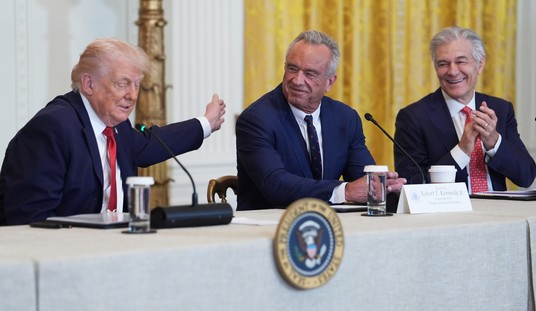The ethanol mandate, known formally as the Renewable Fuel Standard or RFS, is an object lesson in misguided government policy surviving long after its original rationales have been destroyed.
The national security rationale was that oil was scarce, but now we're the world's leading oil producer and have begun exporting crude.
The environmental rationale was that ethanol would reduce greenhouse gas emissions, but since a landmark study was published in Nature in 2008 we've known: "there's little doubt that ethanol is making global warming worse."
Even the jobs rationale fails. Per the Congressional Budget Office: "roughly the same amount of corn ethanol would be used in 2017 if fuel suppliers had to meet requirements equal to EPA's proposed 2014 volumes or if lawmakers repealed the RFS, because suppliers would probably find it cost-effective to use a roughly 10 percent blend of corn ethanol in gasoline in 2017 even in the absence of the RFS."
Got that? Even with the decline in oil prices, ethanol is the most cost-effective octane booster. The era of 10 percent ethanol gasoline, E10, as America's most common transportation fuel isn't going to end if the RFS is repealed. Those ethanol jobs aren't going anywhere.
But that doesn't mean this is not a high stakes issue, because under current law the mandate is set to sharply increase, with devastating consequences.
The Congressional Budget Office estimates that if the mandate hits as scheduled under current law in 2017, it will raise prices at the pump 30 to 51 cents a gallon for diesel and 13 to 26 cents a gallon for E10.
That's a lot of money to spend for no environmental benefit.
Even Al Gore has admitted the mandate was a mistake. Gore supported it because: "I had a certain fondness for the farmers in the state of Iowa because I was about to run for president."
Unfortunately, many 2016 candidates are repeating Gore's mistake.
Hillary Clinton and Bernie Sanders are enthusiastic supporters, as is Martin O'Malley - despite the fact that just a few years ago he begged the EPA to suspend the mandate because of the devastating impact it was having on the cost of feed for Maryland poultry producers.
On the Republican side, the ethanol industry created a group called America's Renewable Future (ARF) and hired the governor of Iowa's son to run it. The group secured early support for the RFS from Ben Carson, Chris Christie, Mike Huckabee, Rick Santorum, and Donald Trump.
Then they added John Kasich, who delightfully explained at an Iowa town hall: "I'm for your Renewable Fuel Standard. I've already sold out on that one."
Jeb Bush and Marco Rubio would maintain current law through 2022, which until recently earned them a "needs work" score from ARF. The industry has since deemed that position acceptable in their final scorecard.
That leaves Rand Paul and Ted Cruz as the industry's named enemies, but the latter is leading in the polls.
Cruz recently reiterated his support for actively phasing the mandate down to zero - but ARF, which had been attacking him for taking that position, instead celebrated it. Considering the CBO analysis that a freeze, let alone a phase down, would be economically equivalent to repeal, it suggests the industry is trying to position itself to spin a Cruz victory.
Cruz did also say in a Des Moines Register op-ed that he intends to use anti-trust enforcement to enhance market access for ethanol, including blends of E25 and E30. Cruz claims that higher ethanol blends "could prove quite popular with American consumers, who are increasingly concerned with fuel economy." That's odd because ethanol has about 34 percent less energy per unit volume than gasoline, therefore higher ethanol blends will have worse, not better, fuel economy.
Still, Cruz's position is essentially a prediction, however unlikely, about what would happen in a free market without any energy mandates or subsidies, not a retreat from his plan to repeal the RFS.
No matter who wins Iowa, it is increasingly clear that the RFS is no longer an automatic political imperative for presidential candidates - and that's great news for everybody who fills a gas tank.

























Join the conversation as a VIP Member